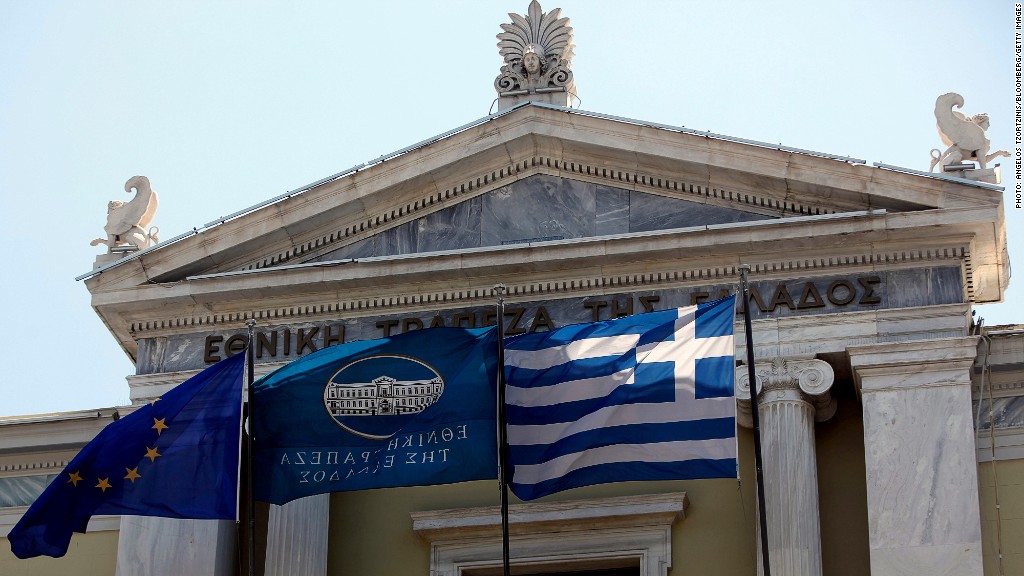
It looks like Greece will be able to make its latest bond payment next week, thanks to some creative financing.
The Greek government sold over €4 billion worth of three month bills on Tuesday, which analysts say will be used to repay €3.2 billion in bonds held by the European Central Bank that mature on August 20.
Greek banks were the main buyers at Tuesday's auction, because most outside investors are still unwilling to lend money to Athens.
However, since the ECB decided in July to stop accepting Greek government bonds as collateral, Greek banks have been dependent on the Greek central bank for emergency liquidity. The banks are widely believed to have used central bank money to buy the bills.
"Greece has basically been feeding off the eurosystem at one window to repay it at another," said Nicholas Spiro, director of London-based consultancy Spiro Sovereign Strategy, referring to the group of 17 eurozone central banks. "It's just a recirculation of the funds."
The immediate goal is to avoid a messy default that could force Greece out of the euro currency union and set off a market panic that drags down Spain and Italy.
European economy slumps in second quarter
But the proceeds from this week's debt sale could also help cover any budget shortfalls that occur if the latest installment of Greece's bailout money is delayed, said Dimitri Papadimitriou, a professor of economics at Bard College.
"It was convenient to have this arrangement coming to fruition," said Papadimitriou.
Greek prime minister Antonis Samaras and his partners in the coalition government are struggling to find an additional €11.5 billion in spending cuts required by the European Union, International Monetary Fund and ECB, known as the troika.
Troika officials are set to return to Athens in early September to complete their review of the government's finances. That means eurozone finance ministers will probably not make a decision on Greece's bailout money until they meet on October 8.
In the meantime, Samaras is expected to push for a two-year extension of Greece's bailout program, which would give the government more time to implement difficult reforms. He is scheduled to meet next week with German Chancellor Angela Merkel and French President François Hollande, among other top eurozone officials.
Citi: Chance of Greek eurozone exit at 90%
Germany in particular has been reluctant to make concessions for Greece, and some German politicians have said that a Greek exit from the eurozone would be manageable.
While the eurozone has strengthened its financial firewall, economists say it is impossible to predict what would happen if Greece were to leave the currency union.
The stakes are particularly high as borrowing costs for Spain and Italy have drifted upward recently, rising back near unsustainable levels. Investors are particularly concerned about Spain, which is widely expected to ask the eurozone bailout fund and ECB to intervene in the bond market.
"No one wants to gamble on a disorderly Greek exit from the eurozone," said Spiro.


